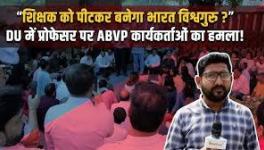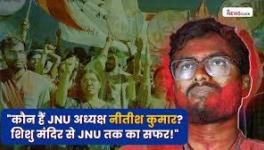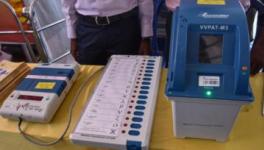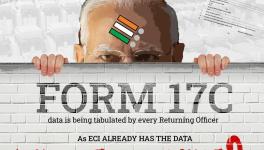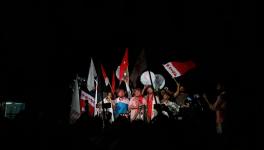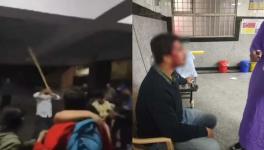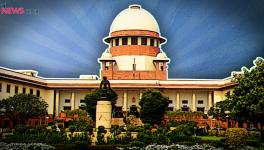Counting of Votes for JNUSU Polls Starts, Results on Hold Till September 17
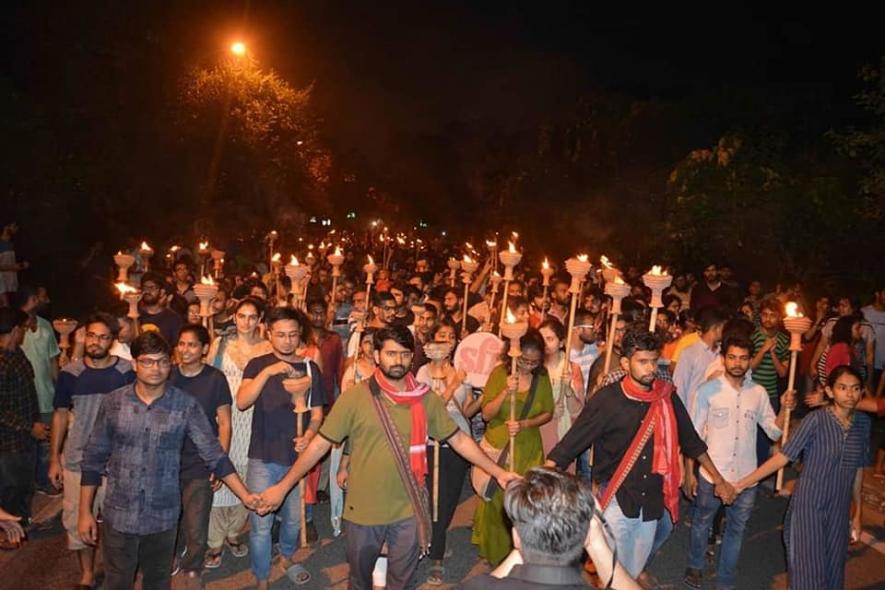
The counting of votes for Jawaharlal Nehru University Students’ Union (JNUSU) was initially started on September 6, at around 11:55 in the night. However, the counting was put on hold soon. According to a statement released by the Chief Election Commissioner of JNU, Shashank Patel, “The counting process had to be put on hold because there had been a deadlock situation between the students community decision about not following the Grievance Redressal Cell (GRC) recommendations of undertaking to be given by counting agents and also in regard to the declaration of final result.”
Like most other colleges and universities, the GRC, consisting of faculty from various schools of the university was set up in JNU as per the Lyngdoh Committee guidelines. The GRC is responsible for making sure that the election process has been duly followed and for addressing the grievances raised by the students, if any. However, this time, the GRC attempted to be a part of the counting process as observers. Talking to NewsClick, Manish, a PhD scholar from JNU said, “The GRC is trying to take away the autonomy of the Election Committee (EC). They said that they will be a part of the counting process this time, and even though we vehemently opposed it, they forced the EC into accepting their decision.
The EC said in a statement, “The EC had tried its best to convince the GRC to change its stand based on the demands of the student community which had led to a halt in counting process for more than 11 hours. Because a consensus could not be reached even after so many hours, Election Committee has decided to go ahead and resume the counting process with declaration of trends but the final result will not be disclosed.”
Hours before the polling for the JNUSU elections ended, the Delhi High Court on Friday put the process on hold and restrained the university from notifying the results till September 17. The decision was taken by Justice Sanjeev Sachdeva, who also issued a notice and sought response from JNU on two petitions filed by students alleging that the elections were held in violation of recommendations of the Lyngdoh Committee.
One Petitioner, Anshuman Dubey, complained to the courts that the students’ body had reduced the number of seats of councillors from 55 to 46, even though the Lyngdoh panel stated that each college, school, department has to have representation in the union. Manish said that the petitioner is misleading the court. He said, “Earlier, there used to be 29 posts for councillors, and the number was not proportional to the number of students. For example, a school having just 32 students had one councillor, and a school having 2,400 students had just five councillors. The JNUSU came up with a solution, allocating one councillor to any school having at least 50 students. That increased the number of councillors to 46. This is a flexible number, and the number of councillors will keep increasing as and when the number of students increases.” He added, “However, the administration did not like that, because the number calculated by them was 55. As everyone knows, the administration has always been against the JNUSU.”
He also said that the Lyngdoh Committee recommendations do not dictate how many posts should be there for councillors. “It has always been decided by the students’ union and the election committee. The petitioner has just come up with a meaningless issue to delay the election results and the administration is of course supporting him.”
The process that guides the JNUSU elections now was fixed in 2011. Before that, the elections were discontinued by the then ruling party in 2008, claiming that the Annexure 2 of the JNUSU constitution, the section that dictates the protocol for how the elections are going to be organised, had discrepancies and did not match the Lyngdoh Committee recommendations. The case went on in the Supreme Court for the next three years. Manish told NewsClick, “In 2011, the court was told by the students why the JNUSU elections are fundamentally different from the elections in other universities. So the court came up with three relaxations for the university, through amicus curiae Gopal Subramanium.” The students’ committee accepted SC’s orders, and changes were made in the constitution as per the Lyngdoh Committee guidelines, before the elections were resumed in 2011.
Another student of the university told NewsClick, “The election process is mostly funded by the students. The JNUSU is elected by the students. The EC is made of students. The elected representatives work for the welfare of the students. Why is the GRC, made of teachers, trying to interfere in this process? How will we know that they will not try to intimidate the students?”
Get the latest reports & analysis with people's perspective on Protests, movements & deep analytical videos, discussions of the current affairs in your Telegram app. Subscribe to NewsClick's Telegram channel & get Real-Time updates on stories, as they get published on our website.










